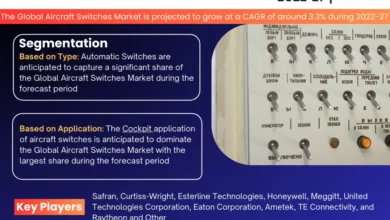
Introduction:
In the heart of the Middle East lies a bustling hub of commerce and trade, where skyscrapers touch the clouds and innovation knows no bounds. The United Arab Emirates (UAE) stands as a beacon of economic prosperity and opportunity, attracting businesses from around the globe. Among the myriad industries thriving in this dynamic landscape, the scrap trading sector plays a pivotal role, contributing to the nation’s sustainable development goals and economic growth. In this comprehensive exploration, we delve into the intricate world of scrap traders in UAE, uncovering their pivotal role, challenges, and prospects in an ever-evolving market.
Understanding the Significance of Scrap Trading:
Scrap trading is essential in the global supply chain, connecting industries needing raw materials with those seeking cost-effective options. The demand for recycled materials is rising as businesses and governments prioritize sustainability, aiming to reduce their carbon footprint. Recycling requires less energy than sourcing virgin materials, making it attractive for industries striving to minimize environmental impact while staying profitable. This trend underscores the increasing importance of scrap trading in fostering sustainability and resource efficiency worldwide.
Moreover, the scrap trading industry fosters innovation and technological advancement. Companies continually develop more efficient methods for sorting, processing, and recycling various materials. This innovation enhances the economic viability of scrap trading and contributes to the advancement of the circular economy model. In this model, resources are reused and recycled in a closed-loop system. Consequently, the scrap trading industry serves as a beacon of sustainability, driving economic growth while mitigating environmental degradation globally.
The UAE’s Strategic Position in the Scrap Trading Market:
Situated at the crossroads of international trade routes, the UAE boasts a strategic geographic location that facilitates seamless connectivity with markets worldwide. This strategic advantage has propelled the nation into a prominent player in the global scrap trading market. With state-of-the-art infrastructure, efficient logistics networks, and a business-friendly regulatory environment, the UAE serves as an ideal destination for scrap traders seeking to capitalize on emerging opportunities.
Key Players and Market Dynamics:
The landscape of scrap trading in the UAE is characterized by a diverse array of stakeholders, including traders, recyclers, manufacturers, and government entities. While some operate on a large scale, others are small and medium-sized enterprises (SMEs) catering to niche markets. Despite this diversity, these players share a common goal: to extract maximum value from discarded materials while minimizing environmental impact.
Market dynamics in the UAE’s scrap trading sector are influenced by a myriad of factors, including global commodity prices, regulatory policies, technological advancements, and consumer behavior. Fluctuations in metal prices, for instance, can significantly impact the profitability of scrap trading activities, prompting traders to adopt agile strategies to mitigate risks and capitalize on emerging opportunities.
Challenges Confronting Scrap Traders:
Like any industry, scrap trading in the UAE is not without its challenges. Traders often encounter the challenge of fluctuating commodity prices, which can significantly impact profit margins. This volatility can disrupt business operations and necessitate frequent adjustments to pricing strategies. Furthermore, compliance with stringent regulatory requirements adds another layer of complexity to the trading process. These regulations encompass environmental standards, occupational safety protocols, and import/export regulations. Meeting these requirements demands meticulous attention to legal frameworks to avoid penalties and maintain operational integrity.
Moreover, competition within the scrap trading market is intense, with numerous players vying for market share and lucrative contracts. In such a competitive landscape, differentiation becomes paramount, compelling traders to innovate, diversify their product offerings, and enhance operational efficiency to stay ahead of the curve.
Scrap Traders in the UAE:
Scrap traders in the UAE encompass a diverse spectrum of businesses, ranging from family-owned enterprises to multinational corporations. These traders operate across various segments of the scrap market, including ferrous and non-ferrous metals, plastics, paper, and electronics. While some specialize in specific materials or processes, others offer comprehensive recycling solutions tailored to the needs of their clients.
One notable characteristic of scrap traders in the UAE is their adaptability and resilience in the face of changing market dynamics. Whether navigating fluctuations in commodity prices, regulatory challenges, or technological disruptions, these traders demonstrate agility and foresight in steering their businesses towards sustainable growth.
Collaboration and partnerships are also key features of the scrap trading ecosystem in the UAE. Traders often collaborate with recyclers, manufacturers, and government agencies to streamline supply chains, optimize resource utilization, and promote circular economy principles. Such synergies foster innovation, knowledge sharing, and collective action towards common goals of sustainability and profitability.
Sustainable Practices and Environmental Responsibility:
Amid growing concerns over environmental sustainability, scrap traders in the UAE are increasingly embracing eco-friendly practices and adopting circular economy principles. By prioritizing resource conservation, waste minimization, and responsible recycling techniques, these traders are not only reducing their carbon footprint but also contributing to the nation’s sustainability agenda.
Furthermore, collaborations between the public and private sectors are fostering initiatives aimed at promoting recycling awareness, incentivizing sustainable practices, and developing infrastructure for efficient waste management. Through such concerted efforts, the UAE is positioning itself as a global leader in sustainable development and environmental stewardship.
Future Outlook and Emerging Trends:
Looking ahead, the future of scrap trading in the UAE appears promising. This optimism stems from technological innovation, evolving consumer preferences, and government initiatives promoting a circular economy. Advanced recycling technologies, such as artificial intelligence (AI) and robotics, are revolutionizing the industry. They enable more efficient sorting, processing, and recycling of materials, driving further growth and sustainability.
Moreover, new market segments like electronic waste (e-waste) recycling and renewable energy offer profitable avenues for scrap traders. The UAE’s shift towards a knowledge-based economy is driving investments in research and development (R&D). These investments are expected to spur innovation in the scrap trading sector. As a result, the industry’s competitiveness on the global stage is likely to improve.
Conclusion:
In conclusion, scrap traders in the UAE play a vital role in driving sustainable development, fostering economic growth, and preserving the environment for future generations. They face challenges such as market volatility and regulatory complexities. Despite these hurdles, they demonstrate resilience, adaptability, and ingenuity. They navigate the ever-changing landscape of the scrap trading industry with determination and creativity.
As the UAE charts a course towards a more sustainable and resilient future, scrap traders remain at the forefront of this transformative journey, leveraging innovation, collaboration, and responsible business practices to create value for society while safeguarding the planet’s precious resources. With unwavering commitment and determination, the UAE’s scrap trading sector is poised to thrive in the years to come, shaping a brighter and more sustainable tomorrow for all.
Also read: The Bin Guys: Your Expert Partner for Waste Management


GCC Building & Construction Plastic Market Share, Size, and Growth Forecast: 10.3% CAGR (2023-28)


